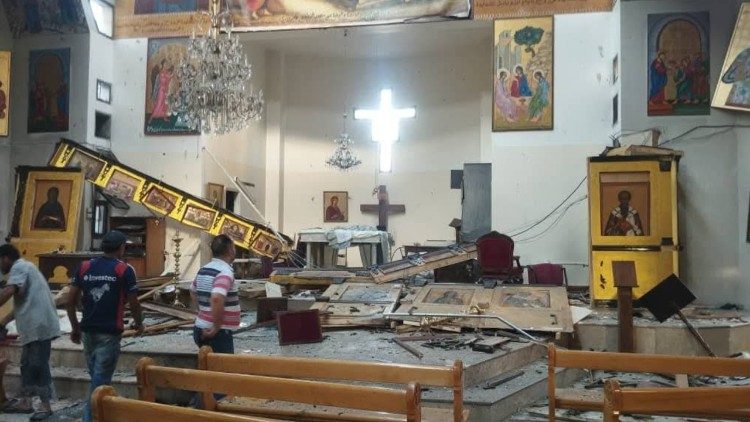
Al-Qaeda in the Arabian Peninsula: Challenges and Opportunities in Revolutionary Yemen
Al-Qaeda in the Arabian Peninsula: Challenges and Opportunities in Revolutionary Yemen
The wave of revolutionary unrest spreading across the Middle East poses a host of new challenges and possibilities for Salafist inspired militant groups like al-Qaeda. The calls for democracy, fair elections, and transparent governments in countries like Egypt, Tunisia, Libya, and Yemen run contrary to Salafist political ideologies that subscribe to ideas like “one vote, one time” and regard democracy as a form of idolatry. [1] While it could be argued that such anti-democratic ideologies look increasingly irrelevant in the current climate, the instability brought about by rapidly evolving political landscapes could result in increased operational freedom for al-Qaeda and other Salafist militants.
This combination of possibilities and challenges facing al-Qaeda is perhaps most pronounced in Yemen where, after almost three months, anti-government protesters continue to call for the removal of Yemeni President Ali Abdullah Saleh and for fair elections. However, at the same time, the erosion of the already limited coercive authority of the central government in many parts of Yemen is providing al-Qaeda in the Arabian Peninsula (AQAP) and other militant Salafist groups with an even more ideal operating environment for training, planning, and launching attacks against domestic and regional targets.
How well AQAP is able to capitalize on this increased operational freedom depends largely on whether or not Yemen transitions to a government that better meets the needs of Yemenis and whether or not AQAP can or will adapt to the changing demands of Yemeni citizens.
Looking For an Audience
It seems that the Islamic world’s various militant Salafist organizations, much like many Western governments, were caught off guard by the rapidity of the revolutions in Tunisia and Egypt. Al-Qaeda central was slow to respond to the protests and resulting regime changes in Egypt and Tunisia. Al-Qaeda central’s second in command, Egyptian Dr. Ayman al-Zawahiri, did not issue a statement until late February in which he warned Egyptians against adopting a democratic form of government since it “can only be secular.”
In the months since the fall of the Tunisian and Egyptian regimes, al-Qaeda has attempted to make up for lost ground by issuing a number of statements and audio recordings praising Egyptians, Tunisians, and Libyans for their courage in overthrowing “tyrannical” regimes. Dr. Ayman al-Zawahiri has appeared in a new video that included statements from American cleric Anwar al-Awlaqi. Both men make laudatory statements about the revolutions but reiterate their calls for the imposition of Shari’a law.
In a recent article entitled “The Tsunami of Change” in AQAP’s English language publication Inspire, Anwar al-Awlaqi attempts to make the argument that the revolutions in Tunisia, Egypt, and Libya will ultimately benefit al-Qaeda and the broader Salafist movement: “We do not know yet what the outcome [of the revolutions] would be, and we do not have to. The outcome doesn’t have to be an Islamic government for us to consider what is occurring to be a step in the right direction.” [2] He goes on to argue that, at a minimum, “Our mujahideen brothers in Tunisia, Egypt, Libya and the rest of the Muslim world will get a chance to breathe again after three decades of suffocation.” The idea that militant Salafist groups operating in all three countries, especially Egypt, will have more operational freedom is the one cogent argument Awlaqi makes in the article.
The articles in Inspire fail to recognize or engage with what most protesters in Yemen and protestors in Egypt are still demanding — democratic reform. At one point in his article, Awlaqi implies that a Taliban style government is what is desired and expected. This is unlikely to resonate among those supportive of the protesters’ demands for democracy and is even unlikely to resonate in more conservative sectors of Yemen society.
There are a number of reasons why a Taliban-like ideology would be unappealing to Yemenis, most particularly the use of qat. Even in regions like Abyan, Lahej, and Shabwa, where AQAP and Salafis reportedly have more of a following, most of the Yemeni men chew qat (a mild stimulant) on a weekly — if not daily — basis. Salafists believe the use of qat is prohibited by Islamic law and must be punished with the death penalty. Nevertheless, qat farming and consumption are integral parts of Yemeni society and the Yemeni economy. It is estimated that over 80% of Yemeni men chew qat on at least a weekly basis. While the consumption and production of qat have many negative effects on Yemeni society, qat also has a moderating effect that should not be underestimated.
Abyan: An Islamic Emirate?
In the restive southern governorate of Abyan, various news outlets reported that AQAP had taken over parts of the governorate on March 30 and had declared the governorate or at least the town of Ja’ar an “Islamic emirate” (al-Bawaba, March 31; Mareb Press, April 1). Supposed members of AQAP made the announcement from a captured radio station in Ja’ar, the site of an ammunition factory/ depot that was looted and then blown up on March 28, killing 150 people. Government sources initially reported that elements of the dormant group Aden Abyan Islamic Army (AAIA) were responsible for looting the factory which produced reloaded AK-47 rounds and small numbers of reconditioned AK-47 rifles (for the AAIA and al-Qaeda, see Terrorism Monitor Briefs, November 11, 2010).
Other reports from residents of Ja’ar indicated that the looting occurred after state security forces withdrew from the town. Residents seized the opportunity to enter the factory and loot the ammunition, brass casings, and gunpowder. In many parts of Yemen, ammunition, especially for the ubiquitous AK-47, acts as a form of currency, and in contrast with the Yemeni riyal, is an appreciating currency with prices for a single round having increased roughly forty percent in the last three months. Reports from the area indicated that women and children were involved in the looting—women and children were certainly among the 150 that were killed when the factory blew up (al-Jazeera, March 31). While there were almost certainly Salafist militants and/or AQAP elements involved in the looting—it is unlikely that the attack on the factory and subsequent looting were the sole work of militants.
The declaration of an “Islamic emirate” in the wake of the withdrawal of state security forces from Ja’ar and other parts of Abyan should also be looked at with some suspicion. While AQAP and ideologically allied groups do enjoy support in the area, the idea that AQAP has control of the region or the town and can impose a Taliban style regime on the people of Abyan is highly unlikely. Like much of northern Yemen, the tribes of Abyan are highly independent, and while some will shelter AQAP operatives and join their ranks, they are unlikely to take orders from the leaders of AQAP. For many tribal groups, AQAP is viewed as a weapon and bargaining tool to be wielded against an unpopular and largely unresponsive government.
AQAP’s declaration of an Islamic emirate was followed by an order for women who are unaccompanied by a male guardian to remain in their homes. This will not be economically feasible and it contradicts many of the region’s cultural and economic roles for women. Abyan’s cultural and economic contexts must also be considered when examining likelihood of AQAP’s declaration and implementation of an Islamic emirate. Abyan and the neighboring governorate of Lahej are two of Yemen’s most important centers of agricultural production. The Abyan Delta has roughly 40,000 hectares of relatively productive farmland, where much of the work is done by women (Guardian, April 10).
A Mutually Beneficial Relationship: AQAP, the Salafists and the Saleh Government
While President Saleh and his government have been publicly described by Western governments, the United States in particular, as key allies and partners in the “war on terror,” the reality is that the Saleh government’s reliability in combating radical elements in Yemen is decidedly mixed. On March 8, concurrent with a prison riot at Sana’a central jail in which one prisoner was killed and 60 injured, at least 70 militant Salafists, some with connections to AQAP, were released from the Sana’a prison of the Political Security Organization (PSO) (al-Arabiya, March 8; The Australian, April 5). The order to release the prisoners logically had to have originated from someone with considerable power within the Saleh government. The release and “escape” of known militants and al-Qaeda operatives is not without precedent. In 2006, 23 men tunneled out of PSO prison and into an adjoining mosque (see Terrorism Focus, February 7, 2006; July 25, 2006). One of the current leaders of AQAP, Nasser al-Wuhayshi, was among the escapees. In 2007, the Yemeni government released Jamal al-Badawi, who was convicted on charges of helping plan the 2000 bombing of the USS Cole after he promised not to be involved in any further al-Qaeda related activities.
The Saleh government has a long history of making use of radical militants. In its long running covert war against the former People’s Democratic Republic of Yemen (PDRY), the Saleh government recruited and used so-called “Afghan Arabs” (Yemenis and other Arabs who had fought against Soviet forces in Afghanistan) to launch operations inside PDRY territory. The Afghan Arabs played a key role in the 1994 civil war in which the south tried to secede from the newly created Republic of Yemen.
Relations between the Saleh government and militant Salafist groups like AQAP are likely more complex than is commonly understood. Both have benefited in different ways from the existence of the other. Judge Hamoud al-Hitar, the former minister for religious endowments who oversaw Yemen’s de-radicalization program, has claimed that the Saleh government uses the threat of al-Qaeda to blackmail Arab and foreign countries into giving support. Judge al-Hitar went on to argue that the threat of al-Qaeda is being exaggerated and that the number of al-Qaeda operatives is only ten percent of government estimates (News Yemen, April 8; The National, April 9). The idea that the Saleh government has an interest in maintaining some level of “terrorist” threat is one that has been voiced by others, including the influential Sheikh Hamid al-Ahmar and should be taken into consideration when vetting Yemeni government assessments of AQAP’s strength and reach (Yemen Times, March 3). At the same time, AQAP and similar groups have benefited from the Saleh regime’s inability to consistently assert state control and its failure to provide even the most basic services in most of Yemen.
Opportunities for Growth
The breakdown of the government’s already limited authority in areas like Abyan, Lahej, and Shabwa will undoubtedly — as Awlaqi suggests in his article — provide AQAP and other Salafist militants increased operational freedom and space in which to plan and conduct operations. The rapid deterioration of the weak Yemeni economy will likely provide AQAP with additional recruits and opportunities to insert itself into the margins of Yemeni communities. Unemployment in parts of Yemen exceeds 40%. The impasse between anti-government demonstrators and the Saleh government has further increased unemployment rates across the country due to the cessation of activities like construction and road work. The increased instability has also led to rising food prices, a hard currency shortage, and a devaluing Yemeni Riyal. All of these are adding to the already severe economic pressures being felt by communities throughout Yemen. These economic pressures can and will make members of some communities more susceptible to radical ideologies.
AQAP has never developed the kind of social network that the Muslim Brotherhood of Egypt developed. The Muslim Brotherhood in its current configuration is not a militant organization so a direct comparison cannot be made; however, AQAP may well learn from the Brotherhood’s success in extending its influence by providing communities with basic welfare services in the absence of an effective and responsive government, especially at a time of increasing economic hardship.
On the regional front, the breakdown of state authority and security will mean that AQAP will have greater opportunities to network with groups like the Shabaab Movement of Somalia. There is already evidence that the two groups have established at least a basic strategic and ideological relationship. Yemen has a long unguarded coastline along both the Gulf of Aden and the Red Sea and shares part of the strategic strait and chokepoint, the Bab al-Mandab (see Terrorism Monitor, February 19, 2010). Moving men and materiel in and out of the country was possible and relatively easy even before the anti-government protests began. Now, with the withdrawal of many state security forces and army troops, insecurity has further increased. Yemen has long been a regional source of black market weapons — the arms smuggling trade in the Red Sea goes back at least two hundred years. The looting and seizure of a number of government arms depots and the fragmented nature of the Yemeni Army likely mean that AQAP will be well supplied with weapons and materiel — more than enough to emerge as a regional supplier to other Salafist inspired militants.
Conclusion
Militant Salafist organizations like AQAP are doctrinally constrained—they are unable to respond to or engage with protesters’ demands for elections and democratic reforms. Yet the unrest generated by the changes present them with a host of new opportunities. In Yemen, AQAP has taken advantage of the breakdown of limited government authority in areas like Abyan and Shabwa. It is likely that AQAP has secured more weapons and is on some level attempting to assert its authority over some communities.
Countering the threat that AQAP represents requires addressing Yemen’s core economic and development issues. It is only in this way that AQAP will be denied an operating environment. Furthermore, Yemen must transition to a government that is better able and more willing to address the needs of all of its citizens. The successful development of real participatory democracies in the Middle East and broader Muslim world is critical to undermining the Salafist ideology and the militant groups that want to impose it on the region.
Notes:
1. Sayyid Qutb, who provides much of the ideological underpinnings for al-Qaeda, argued that all legislation belongs to God alone and therefore that giving human beings the right to legislate contravened the oneness of God and was shirk, which means associating something with God and is considered to be the ultimate sin in Islam.
2. Inspire, March 2011 issue.


